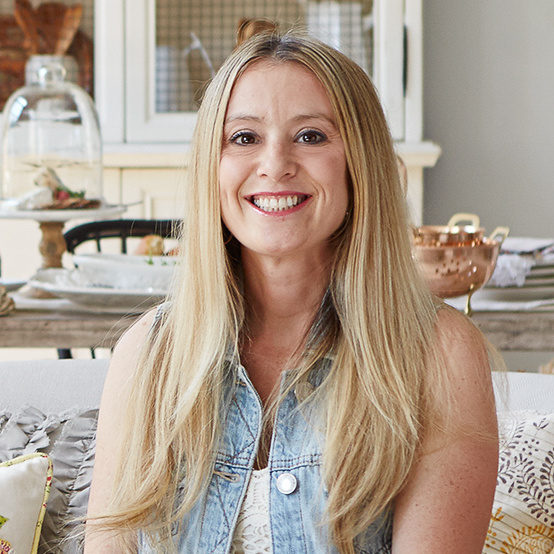How Many Coats Of Paint For Kitchen Cabinets
Article may have affiliate links. If you make a purchase, I may earn a tiny commission at no extra cost to you. Big thanks for supporting my small business.
Are you staring at your kitchen cabinets, wondering how to bring them into this decade without breaking the bank? You’re not alone! Today, we’re tackling a hot topic in the DIY community, how many coats of paint for kitchen cabinets are ideal to give them a fresh modern look.
Just like I did in my recent kitchen renovation, you too can transform your space without the cost of buying new cabinets. It’s all about the right prep work, the best paint and of course, the perfect technique.

How to Get a Factory Finish on Cabinets
A factory finish on cabinets – that sleek, ultra-smooth look, is the dream, right?
One important note to keep in mind before we get started, painting cabinets is much more than just slapping a couple coats of paint on them.

How To Paint Kitchen Cabinets
Keep in mind this process below, as we take a deep dive into painting kitchen cabinets:
- 2 coats of stain blocking primer (our old cabinets were very dark stain)
- 1 coat of cabinet primer
- 2 coats of paint
For cabinet drawers and doors, start with a flat surface and use a high-quality brush or paint sprayer for a smooth application.
Our professional painter suggested that light sanding between coats helps eliminate brush strokes and gives that desired flawless finish. And, don’t forget the patience, a rushed job never yields the best results.
This overall process took 5 – 6 days allowing for 24 hours of dry time in between each coat.
Related: See how to paint kitchen cabinets like a professional
How Many Coats of Primer for Kitchen Cabinets
Before we dive into painting, let’s talk about priming – the hero of the cabinet painting process. The number of coats of primer you need depends on the cabinet’s current color and material.

Usually, one to two coats of a high-quality, stain-blocking primer will do. But, if you’re going from a dark to a light color, you might need an extra coat.
Remember, the first coat of primer is crucial in ensuring a smooth finish.
Step 1: Stain Blocking Primer
For our kitchen, the painters applied 2 coats of BIN-Stain Blocking Primer allowing 24 hours of dry time in between coats.

Once the first coat was dry, the painters lightly sanded with a fine grit sanding block to smooth out any imperfections and eliminate any brush marks. You do not need to sand down to the wood, just lightly sand.
Step 2: Cabinet Primer
Next step was to add the STIX-X cabinet primer and after a 24 hour dry time, lightly sand and wipe clean.

Now that we have talked about the primer, let’s take a look at how many coats of paint we used once the primer application was complete.

Step 3: Cabinet Paint
Last step is to apply 2 coats of Benjamin Moore Advance paint allowing 24 hours to dry in between coats. The BM Advance paint is the paint base and you have the paint store tint to your desired color.

Cabinet Paint Tip: You can use Benjamin Moore Advance Cabinet paint and have the paint store tint it to any brand color you want! For example, I wanted the color Sherwin Williams Mindful Gray but our painter insisted on Benjamin Moore Advance as the brand for the actual paint. All paint brands share color codes with each other so you your paint store can look up any brand color code.
One of the biggest reasons we hired a painting contractor was because I knew I didn’t have the amount of time to dedicate to this project.
I had visions of being super motivated in the beginning and then 1/2 way through becoming super impatient and frustrated because my kitchen was a mess and was overwhelmed.

If you are planning to tackle the paint job on your own, you definitely want to read this post, how to paint kitchen cabinets professionally. In this post, not only do we share the best paint sprayer to use but we also share the step by step guide on how to clean and prep your cabinets for paint. Everything from removing the old cabinet doors, filling the hardware holes with wood filler and the best way to get a professional finish.
Best Paint for Cabinets
When it comes to the best paint for cabinets, there are several.
Oil-based paint offers durability and a smooth finish, but it can yellow over time.
Latex paint, like Benjamin Moore Advance, is a good choice for its ease of use and resistance to chipping.
In my kitchen, I chose a water-based paint for its quick drying time and low fumes, which was great for a space we use daily.

When selecting paint, consider the type of paint and its intended use – this choice can make or break your project!
Be sure to read our paint review post, Benjamin Moore Advance paint, which is a high-quality paint and recommended by the pros for cabinets.
Do You Sand Between Coats on Cabinets
Yes, you should! Sanding between coats with a fine grit sandpaper , especially after the first coat of paint, ensures a smooth surface for the next layer.

Whether you are using sandpaper or a fine-grit sanding block for a light sanding. This step might seem tedious, but it’s the secret to a professional-looking finish. Just be sure to wipe away the dust before applying the next coat.
How Long Should Cabinet Paint Dry Between Coats
Patience is key when painting kitchen cabinets. Rushing the drying time can lead to a finish that’s not durable or smooth.

Typically, you should wait at least 24 hours between coats of paint. This might vary depending on the type of paint and humidity levels. In my experience, letting each coat dry thoroughly was crucial in achieving that perfect finish.
Painting kitchen cabinets is a great way to breathe new life into your kitchen without the expense of a full remodel.
You can see below, we removed our granite countertops and installed new white quartz backsplash and counters. By removing the dark countertops and installing a lighter color, the kitchen is brighter and more modern feeling.

Remember, the best results come from careful prep work, choosing the right primer and paint and taking your time with each step.
Whether you’re a seasoned DIYer or a first-timer, following these step-by-step instructions will ensure your cabinets turn out beautifully. Don’t forget to check out my kitchen renovation series below for more tips and inspiration!
Our Favorite
More Kitchen Cabinet Posts
I have lots of posts from our own kitchen renovation to help you get the perfect finish on your kitchen cabinets! Check out these resources to simplify your project & answer your burning questions.
- Grey kitchen cabinets with white quartz countertops (before and after)
- Best kitchen cabinet paint
- How to Paint Kitchen Cabinets Professionally
- Best DIY Paint Sprayer for Your Kitchen Remodel
- How many coats of paint should you do when painting kitchen cabinets
- Best grey kitchen cabinet paint colors
- How Much Does It Cost To Paint Kitchen Cabinets
- Updating A Kitchen Without Removing Cabinets
- How to choose kitchen cabinet hardware to match decor
- Mindful Gray Paint Cabinet Review
- How High To Hang Kitchen Cabinets

Meet Jessica
What started as a hobby, Jessica’s blog now has millions of people visit yearly and while many of the projects and posts look and sound perfect, life hasn’t always been easy. Read Jessica’s story and how overcoming death, divorce and dementia was one of her biggest life lessons to date.






